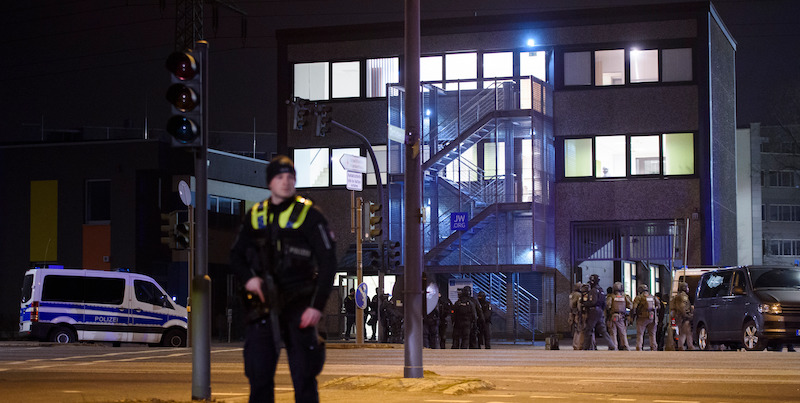Six people were killed and eight were injured in an armed attack Thursday evening at a hall of Jehovah’s Witnesses in Hamburg, northern Germany. The attack was carried out with a firearm around 21. The police intervened shortly after, at 21:08, because at the time of the attack there happened to be a patrol nearby. The hall is located in the residential district of Gross Borstel, in Deelböge Strasse.
Upon their arrival in the three-story building, the policemen first found the bodies of six people and then heard a shot from the top floor, where they found a seventh body, that of the perpetrator of the massacre. On Friday afternoon, police said the name of the perpetrator of the attack was Philipp F., a 35-year-old German citizen who was a former member of Jehovah’s Witnesses and had a valid firearm license: he was found with a semi-automatic pistol, with two magazines of 15 rounds each and other boxes containing 200 rounds in the backpack.
He had no criminal record and the reasons for his act are not yet known. However, the police said they received an anonymous complaint last January in which it was claimed that the man suffered from mental disorders and that for this reason he should not have a firearms licence. The Hamburg police chief, Ralf Martin Meyer, said that after the complaint the policemen had gone to Philipp F.’s house for a check but that they had not found any reasons to fear for his mental health.
At the time of the massacre, what Jehovah’s Witnesses call a “meeting” was underway, a bi-weekly meeting in which the faithful are studied and instructed. There were about fifty people in the building. According to the police, Philipp F. entered secretly through a window.
Jehovah’s Witnesses are a Christian religious movement born in the United States in the nineteenth century and present throughout the world: it is estimated that 8 million people belong to it, and in Germany there are more than 170 thousand. Among other things they are famous for their door-to-door evangelism activities, for some sectarian mechanisms and for their refusal to receive blood transfusions.
